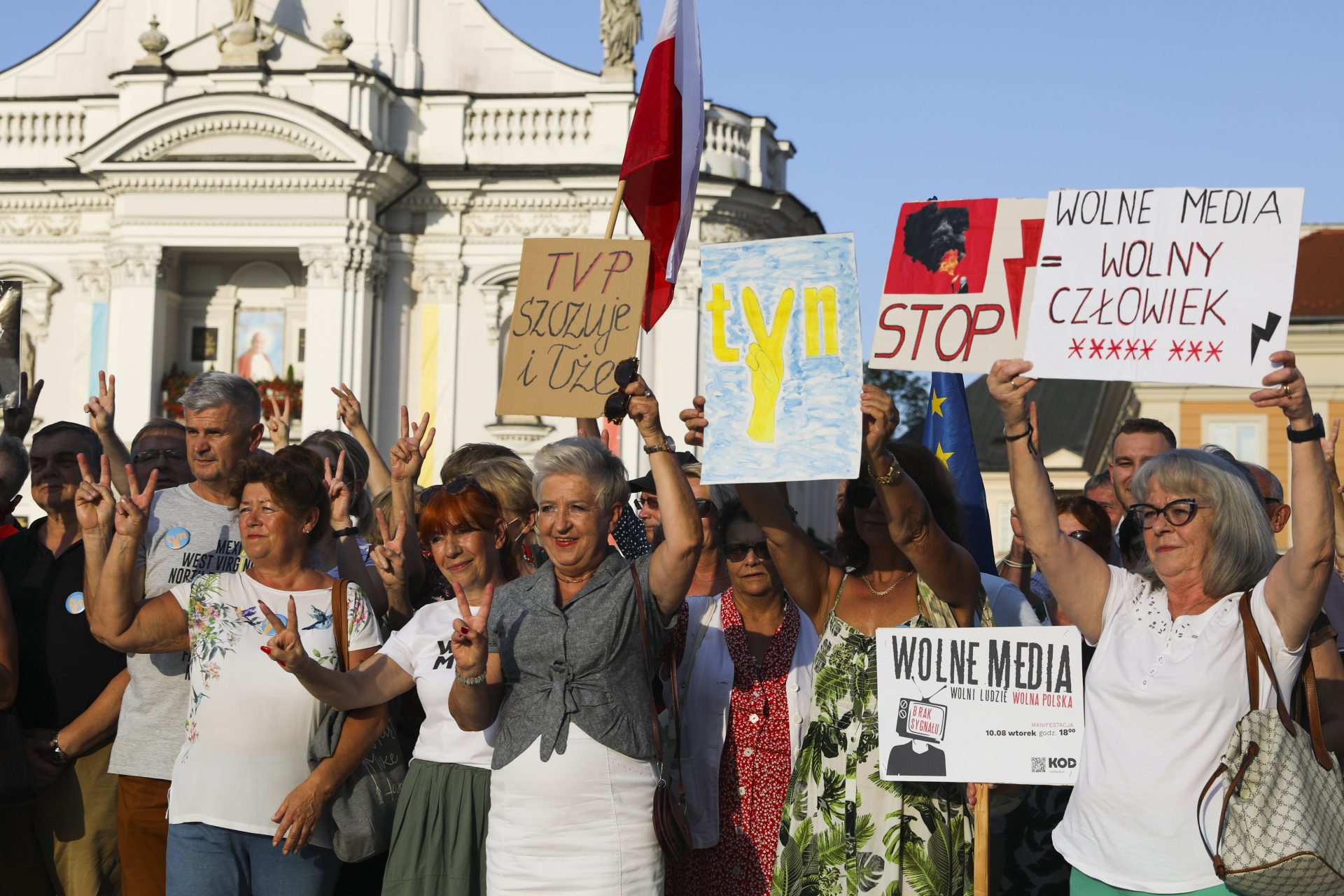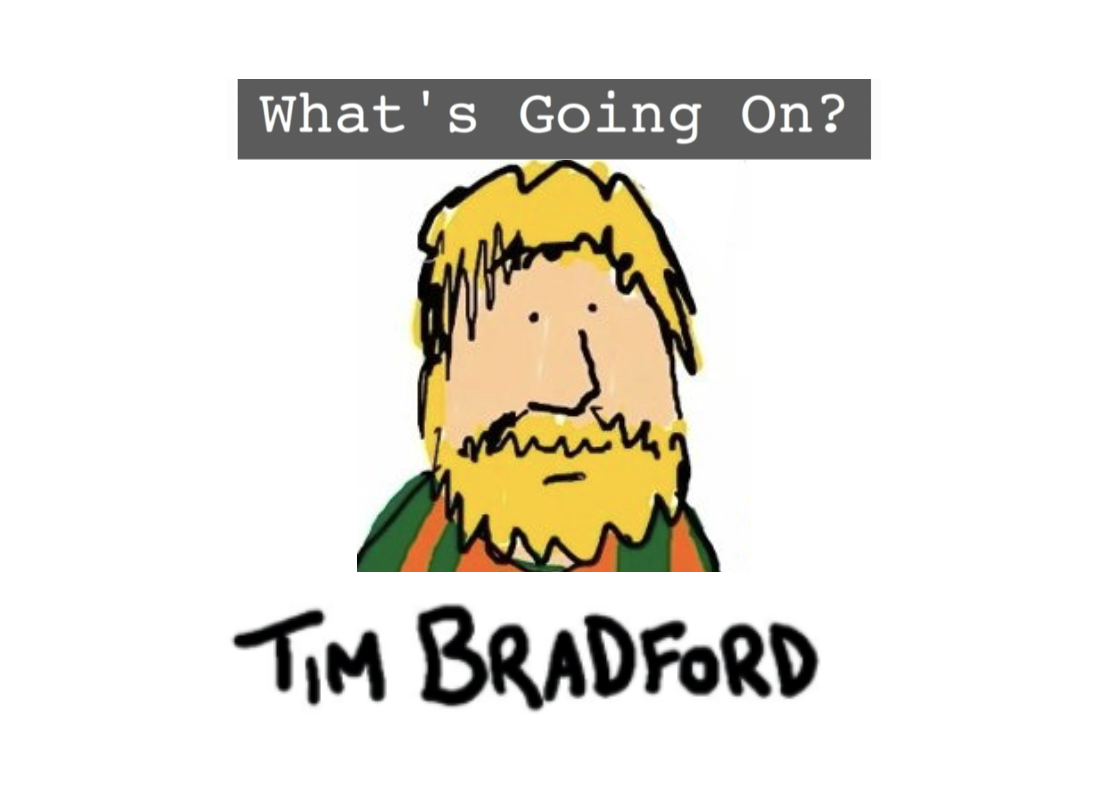For decades, Poland’s journalists have been their nation’s best ambassadors. Ryszard Kapuściński reported on African dictators during his country’s years under communism. He did not attack the ruling regime in Warsaw, but everyone got the message.
The great Polish journalist and editor, Adam Michnik, was a founding genius of Solidarity and the underground paper he edited, Gazeta Wyborcza, transformed the peaceful revolutionary movement of 1980-81 into a national force that ended communism in Poland with free elections months before the fall of the Berlin Wall.
I saw the process up close, covering Solidarity as a reporter, and also getting involved in their campaign as an international trade union official, taking $10,000 in small bills to its underground printing operation. (Sometimes I was a little too close to the action and on one occasion I was imprisoned and deported by the communist authorities).
After that end of communism Wyborcza was central to Poland’s re-entry into European democracy. The sparky irreverence of Polish journalists exposed the failings of governments of the centre left and right alike. But Poland’s journalism is now a sad shadow of its former self. Since the right wing, Catholic-nationalist Law and Justice Party (PiS, in its Polish acronym) formed its second government in 2015 there has been a relentless onslaught on press freedom.
The government has worked tirelessly to dilute and weaken the Polish media so that journalists are forced to give up holding the ruling elite to account. At one level there is nothing new or even non-democratic in this.
Democratic politicians have always sought to influence, cajole or even control the media. Donald Trump was helped by Fox News. Silvio Berlusconi twisted Italy’s television ownership rules to create a network of stations that backed his idiosyncratic politics.
But those efforts did not on the whole involve the full power and authority of government, as is the case in Poland now. Rather, the PiS have used techniques that were seen in Poland, Czechoslovakia and East Germany after 1945 when, bit by bit, the ruling party took over control of the media wholesale.
Step one is to remove independent journalists from key positions. As soon as PiS won power in 2015, there was a purge of journalists from Polish Radio and Polish TV – the equivalent of the BBC. They were replaced by PiS supporters.
Step two was to start using libel laws viscously and systematically to shut down criticism. Government departments, ministers, PiS-appointed judges, business oligarchs linked to the ruling party, and wealthy individuals are able to use Polish law to launch so-called Strategic Lawsuits Against Public Participants (‘SLAPPs’) against any journalist or media outlet.
These are not unique to Poland but have been weaponised by the PiS to an extraordinary degree. Their intention is to censor through intimidation, silencing critics by burdening them with the cost of a legal defence.
Poland’s Society of Journalists have identified 187 different legal attacks launched by PiS and its networks against Polish journalists since 2016. Gazeta Wyborcza, has faced 73 SLAPP legal attacks.
The Swiss-German Ringier Axel Springer media group, which publishes Polish Newsweek, has faced 39 such assaults. And anyone who writes objectively about LGBT issues – a pathological obsession for Poland’s ultra-conservatives – stands a fair chance of facing legal action.
It is tiring and demoralising, and it is so much easier for journalists to instead report other issues that do not require challenging the government.
Step three is to force the compulsory sale of media outlets to PiS-supporting firms. Already a network of 24 daily regional newspapers, as well as more weekly titles and websites has been sold – under PiS pressure – to a state-owned firm.
PiS has a totalising mentality. It wants not just to control the Sejm, Poland’s parliament, but as far as possible to ensure that its voice dominates in the country’s regions, cities and towns. Now the government has its eyes on Poland’s most popular, independent and balanced news network, TVN24.
It was launched soon after the end of communism with investment by France’s Canal+ group and the US Discovery Channel later took a stake. Discovery doesn’t do politics, but it does believe in Western norms of independent journalism.
This is unacceptable to those seeking the Putinisation of Polish media. The regime has forced through a bill saying the foreign owners of any media in Poland have to be based in the European Union or European Economic Area.
At one level this is sheer chutzpah as the EU is bearing down hard on the PiS for its undermining of an independent judiciary in Poland. The idea of the PiS playing the EU card to help boot out Discovery is like something Ryszard Kapuściński might have written in one of his books on African despots.
The real motivation for the government move was revealed by PiS law-maker, the Sejm deputy Marek Suski, who said that forcing the US media giant to sell its stake to Polish businessmen would give the government “some influence” over TVN. Not even Putin would put it quite so crudely. The law is expected to be defeated in the senate before returning to the lower house.
The US has long taken pride in being Poland’s very best friend in world affairs. But the move against Discovery is playing badly in Washington.
The State Department has protested and a group of senators on the influential Foreign Affairs committee have also condemned the attempts to force Discovery out of Poland.
For the time being there is stalemate. There are no international bodies or mechanisms that can impose a free media on a government that rejects the very idea. For roughly 200 years the idea of democracy and progress was inextricably was linked to freedom of expression and journalism. But for how much longer?
- Denis MacShane is a former Europe minister, a former president of the UK National Union of Journalists and an executive member of the International Federation of Journalists. He wrote the first book in English on Solidarity in 1982



